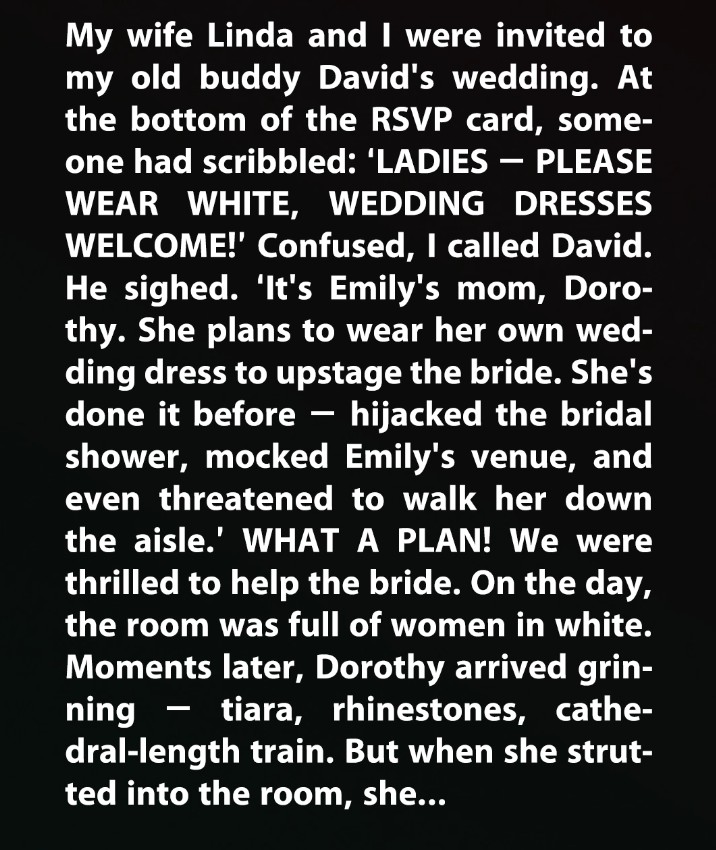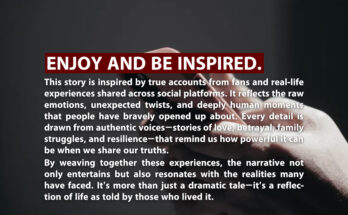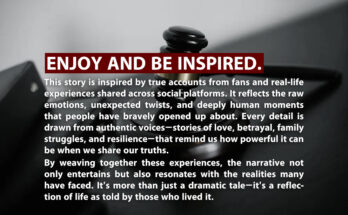From the moment the wedding planning began, it was clear the bride’s mother saw the event as her own stage. She insisted on choosing the venue, the flowers, even the guest list—dismissing her daughter’s wishes with phrases like “trust me” and “you’ll thank me later.” What was meant to be a celebration of love turned into a showcase of maternal control, with the bride sidelined in her own story.
On the big day, the mother arrived in a gown that rivaled the bride’s, gave a speech that centered on her sacrifices, and posed for photos as if she were the star. Guests whispered, sensing the tension. The bride, gracious but visibly hurt, had reached her limit.
Then came the twist.
During the reception, the bride stood up and gently took the mic. With poise and warmth, she thanked everyone—then turned to her mother. “Mom,” she said, “you’ve always wanted the spotlight. Today, I’m giving it to you. Because from this moment on, I’m stepping into my own story.”
She invited her mother to dance, not as a gesture of surrender, but of closure. The crowd watched as the bride reclaimed her voice—not with anger, but with grace. Her message was clear: love doesn’t mean losing yourself, and dignity doesn’t require drama.

That night, the bride didn’t just get married. She transformed. And everyone saw it.


